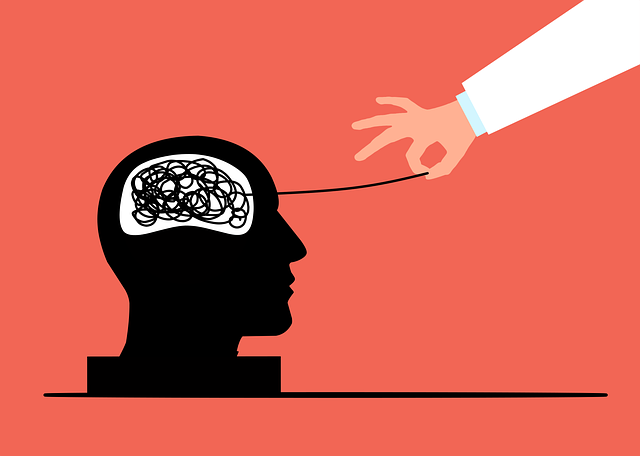Emotion regulation techniques are essential for mental wellness, as seen in Broomfield Bariatric Evaluations Therapy, which offers a holistic approach. By identifying emotional triggers and using methods like mindfulness meditation and cognitive reframing, individuals gain control over their reactions. This not only prevents burnout but also enhances overall well-being. Healthcare providers can support this through training and community outreach programs, creating supportive environments that address emotional needs, as demonstrated by Broomfield's successful integration of therapy into various services and public awareness campaigns.
Emotion regulation techniques are essential tools for navigating life’s challenges. This comprehensive guide explores the significance of mastering emotional wellness, highlighting Broomfield Bariatric Evaluations as a holistic approach. We delve into identifying triggers and providing practical daily practice techniques to foster self-control. Additionally, we discuss integrating therapy for long-term success, focusing on strategies that empower individuals to manage their emotions effectively. Discover how these techniques can revolutionize your emotional landscape.
- Understanding Emotion Regulation: Unraveling the Concept and Its Significance
- Broomfield Bariatric Evaluations: A Holistic Approach to Emotional Wellness
- Identifying Triggers: Recognizing Patterns for Effective Management
- Techniques for Daily Practice: Tools to Foster Self-Control and Resilience
- Integrating Therapy: Strategies for Long-Term Emotion Regulation Success
Understanding Emotion Regulation: Unraveling the Concept and Its Significance

Emotion regulation techniques are a crucial aspect of mental wellness and play a pivotal role in individuals’ overall well-being. Understanding this concept involves recognizing that emotions are an integral part of the human experience, but learning to manage them is essential for maintaining a healthy mind. It is about developing strategies to respond to and control emotional reactions, ensuring they align with one’s values and goals. This process empowers individuals to navigate life’s challenges and stresses more adaptively.
In today’s fast-paced world, where issues like burnout prevention are on the rise, mastering emotion regulation techniques can be a game-changer. The concept is not merely academic but has significant implications for various aspects of life. For instance, healthcare providers equipped with strong emotional intelligence through cultural competency training can better assist patients, fostering a more supportive and understanding environment during Broomfield bariatric evaluations and therapy sessions. Community outreach program implementation can also benefit from this knowledge, as it enables programs to address participants’ emotional needs effectively.
Broomfield Bariatric Evaluations: A Holistic Approach to Emotional Wellness

Broomfield Bariatric Evaluations offers a holistic approach to emotional wellness, addressing the complex interplay between physical health and mental state. This comprehensive evaluation process goes beyond traditional therapy by integrating various aspects of an individual’s life, including dietary habits, exercise routines, social interactions, and stress management skills. By utilizing cutting-edge methods and combining them with personalized coaching programs, they aim to develop effective strategies for emotion regulation.
The evaluation includes in-depth discussions about eating behaviors, identifying triggers for emotional eating, and implementing healthier coping mechanisms. Social skills training is a key component, teaching individuals how to build supportive networks and resolve conflicts constructively. Conflict resolution techniques are essential in managing relationships and reducing stress levels. This holistic approach ensures that clients gain the tools needed to navigate their emotions effectively, promoting long-term mental wellness.
Identifying Triggers: Recognizing Patterns for Effective Management

Identifying triggers is a key step in emotion regulation techniques teaching. By recognizing patterns that set off emotional responses, individuals can gain valuable insights into their unique emotional landscape. This process involves becoming attuned to internal cues and external stimuli that precipitate strong feelings. Through careful observation and self-reflection, one can identify specific situations, people, or thoughts that act as triggers, allowing for proactive management of emotions.
In the context of Broomfield Bariatric Evaluations Therapy and related mental health services, understanding these patterns is essential. Community Outreach Program Implementation, Mental Health Policy Analysis and Advocacy, and Mental Health Education Programs Design can all benefit from this knowledge. By recognizing triggers, individuals can develop personalized strategies to navigate challenging situations, thereby improving their overall emotional well-being and quality of life.
Techniques for Daily Practice: Tools to Foster Self-Control and Resilience

Emotion regulation techniques are essential tools for maintaining self-control and building resilience, especially when navigating challenging situations. Daily practice plays a crucial role in mastering these skills. One effective method is mindfulness meditation, which helps individuals become more aware of their emotions and teaches them to observe without judgment. By focusing on the present moment, individuals can gain better control over impulsive reactions and develop a more balanced emotional response.
Additionally, cognitive reframing techniques enable people to challenge negative thought patterns and replace them with more adaptive ones. This process fosters resilience by helping individuals view difficult situations as opportunities for growth rather than threats. Broomfield Bariatric Evaluations Therapy, for instance, utilizes these principles to support patients in managing emotional eating habits, demonstrating the practical application of such techniques in specialized healthcare settings. Public Awareness Campaigns Development and Cultural Sensitivity in Mental Healthcare Practice can also be leveraged to promote understanding and encourage individuals to adopt healthy coping strategies, ultimately enhancing overall well-being.
Integrating Therapy: Strategies for Long-Term Emotion Regulation Success

Integrating therapy into one’s life is a powerful strategy for long-term emotion regulation success. Broomfield Bariatric Evaluations Therapy, for instance, offers specialized support tailored to individual needs. This approach goes beyond addressing symptoms; it equips individuals with tools to navigate and understand their emotions effectively. By combining therapeutic techniques with a structured self-care routine development for better mental health, one can foster resilience and emotional well-being.
Healthcare providers play a pivotal role in promoting emotion regulation skills. Incorporating burnout prevention strategies into their practice, alongside healthcare provider cultural competency training, ensures they can support patients holistically. This comprehensive approach acknowledges that emotional health is integral to overall wellness, encouraging sustainable progress and enhancing the quality of life for those seeking long-term emotional balance.
Emotion regulation is a vital skill, and with techniques like those offered by Broomfield Bariatric Evaluations therapy, individuals can gain significant emotional wellness. By understanding triggers, practicing self-control daily, and integrating holistic approaches, people can effectively manage their emotions and lead more fulfilling lives. These strategies provide a robust foundation for long-term success in navigating life’s challenges with resilience and adaptability.










